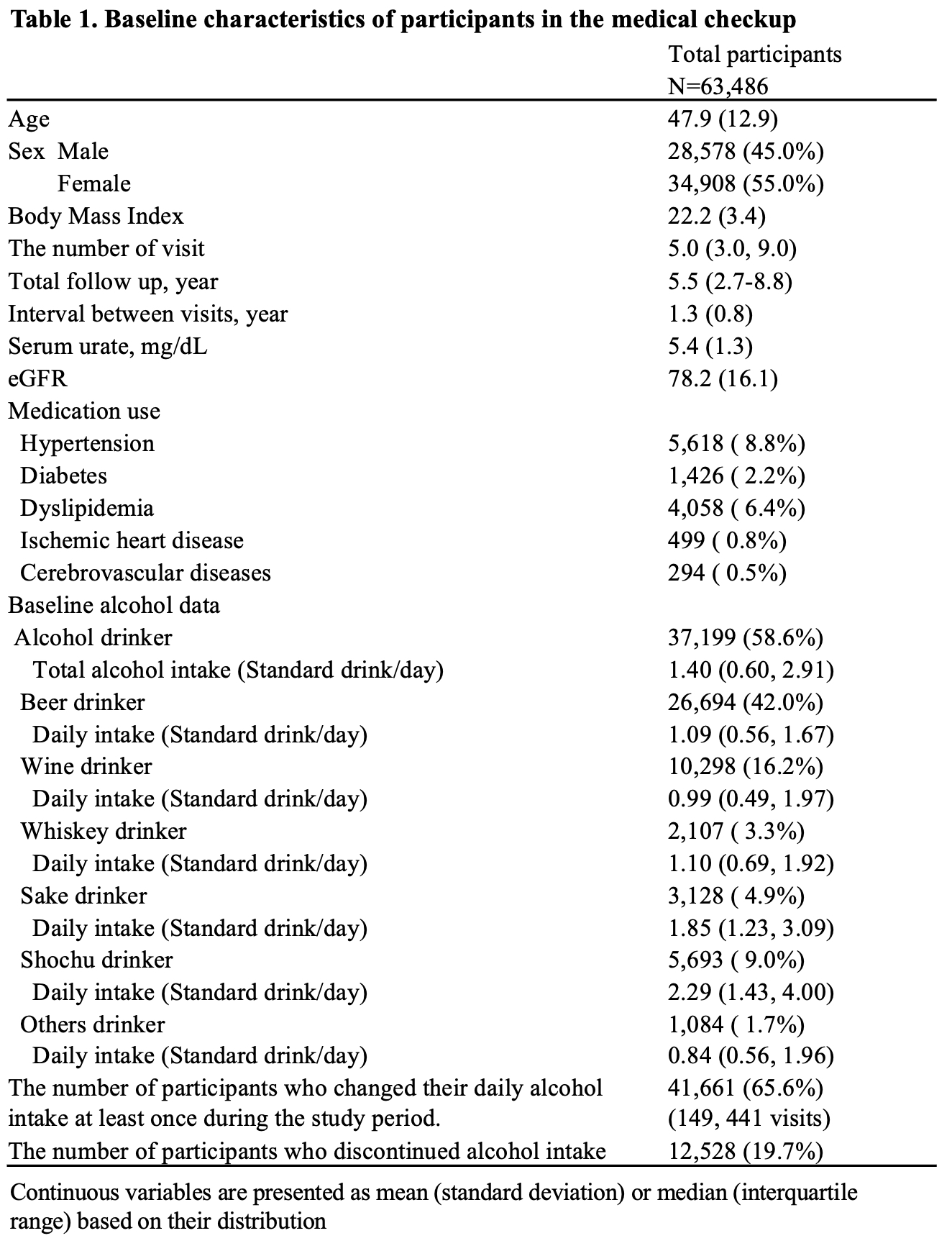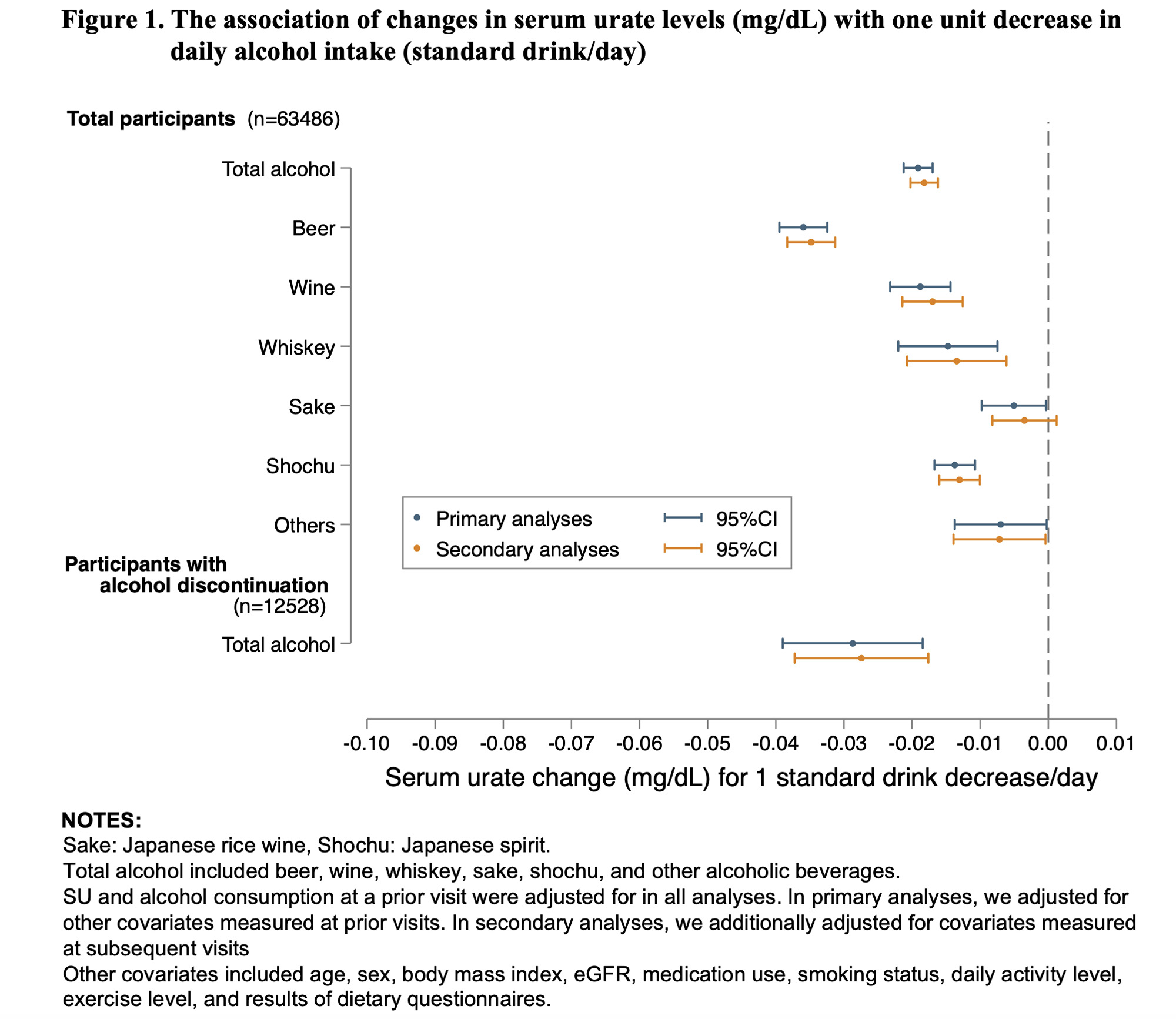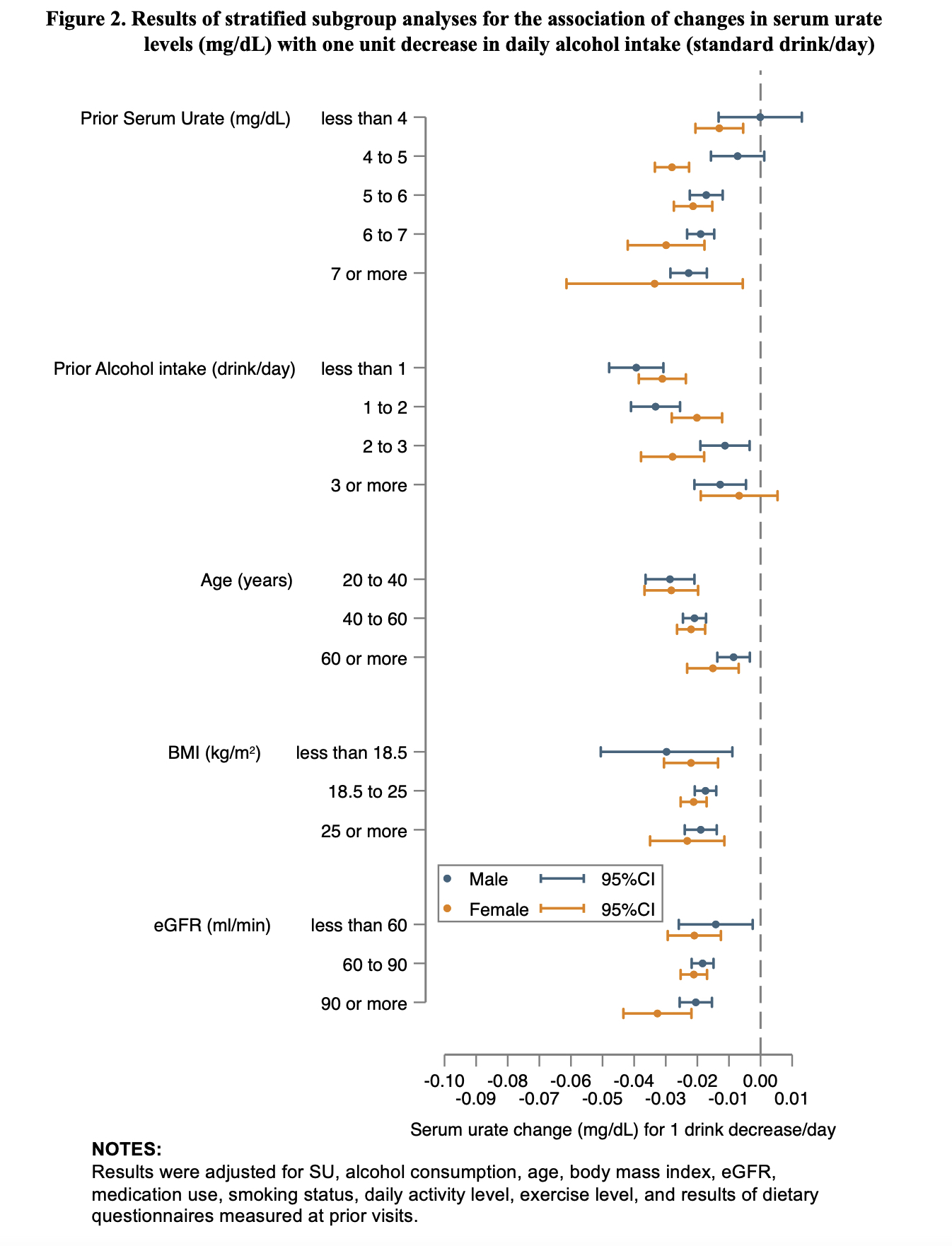Session Information
Session Type: Poster Session C
Session Time: 9:00AM-11:00AM
Background/Purpose: Cross-sectional epidemiologic studies support a direct relationship between alcohol intake and serum urate (SU). These observations are parts of the basis for gout recommendations suggesting limiting alcohol intake. However, it is unknown whether reductions in alcohol intake over time are associated with reductions in SU. Hence, we evaluated the relationship between changes in daily alcohol intake and changes in SU levels.
Methods: This longitudinal observational study used prospectively collected annual medical checkup data at a large medical checkup center in Japan. At each visit, daily alcohol intake information was collected using a standardized collection tool, and SU was routinely measured. We included consecutive participants with at least two visits from Oct 2012 to Oct 2022. Participants who received treatment for hyperuricemia or gout during the study period were excluded. The outcome was a change in SU between two visits, and exposures of interest were changes in total daily alcohol intake and in specific types of alcoholic beverage intake (e.g., beer, whiskey, wine, sake, shochu, and others). We used a linear mixed-effect model with random intercepts to take longitudinal intrapersonal correlations into account. We adjusted for SU and alcohol consumption at a prior visit. In addition, age, sex, body mass index, eGFR, medication use, smoking status, daily activity level, exercise level, and results of dietary questionnaires measured at prior visits were adjusted for in primary analyses. In secondary analyses, covariates measured at subsequent visits were also included. As well, we examined the associations in people who fully discontinued alcohol consumption and in sub-groups.
Results: A total of 63,486 participants with 370,572 visits were included in the analyses. The mean (standard deviation) age was 48.0 (12.9) years, and 28,578 (45.0%) were male. 37,199 (58.6%) were regular alcohol drinkers with a median alcohol intake of 1.4 drink/day. The mean interval between visits was 1.3 years. There were 149,441 episodes of changing daily alcohol intake in 41,661 participants (Table 1). The primary analysis showed a significant but very small association between one alcoholic drink decrease and SU (SU change -0.019 [-0.021, -0.017] mg/dL; p< 0.001); the association varied based on the type of alcohol consumed. The extents of the associations were almost the same in secondary analyses and when we focused on the visits where participants fully discontinued regular alcohol intake (Figure 1). In stratified sub-group analyses, larger but still small changes in SU were observed in younger participants, lighter drinkers, and those with higher initial SU levels. (Figure 2).
Conclusion: Although alcohol intake is associated with acute gout events, this study found that longitudinal changes in daily alcohol consumption did not result in clinically relevant changes in chronic SU levels. Reducing alcohol intake alone is unlikely to be a major driver of reductions in chronic SU in the general population.
To cite this abstract in AMA style:
Fukui S, Okada M, Shinozaki T, Asano T, Nakai T, Tamaki H, Kishimoto M, Hasegawa H, Matsuda T, Marrugo J, Tedeschi S, Solomon D. Longitudinal Changes in Serum Urate Associate Minimally with Changes in Daily Alcohol Intake [abstract]. Arthritis Rheumatol. 2023; 75 (suppl 9). https://acrabstracts.org/abstract/longitudinal-changes-in-serum-urate-associate-minimally-with-changes-in-daily-alcohol-intake/. Accessed .« Back to ACR Convergence 2023
ACR Meeting Abstracts - https://acrabstracts.org/abstract/longitudinal-changes-in-serum-urate-associate-minimally-with-changes-in-daily-alcohol-intake/



